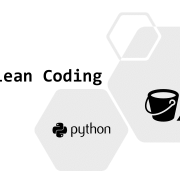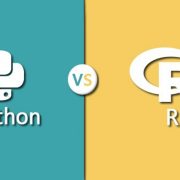Article series: 5 Clean Coding Tips – 4. Stop commenting the obvious
This is the fourth of the article series “5 tips for clean coding” to follow as soon as you’ve made the first steps into your coding career, in this article series. Read the introduction here, to find out why it is important to write clean code if you missed it.
Everyone will tell you that you need to comment your code. You do it for yourself, for others, it might help you to put down a structure of your code before you get down to coding properly. Writing a lot of comments might give you a false sense of confidence, that you are doing a good job. While in reality, you are commenting your code a lot with obvious, redundant statements that are not bringing any value. The role of a comment it to explain, not to describe. You need to realize that any piece of comment has to add information to the code you already have, not to double it.
Keep in mind, you are not narrating the code, adding ‘subtitles’ to python’s performance. The comments are there to clarify what is not explicit in the code itself. Adding a comment saying what the line of code does is completely redundant most of the time:
# importing pandas import pandas as pd # loading the data csv_file = csv.reader(open'data.csv’) # creating an empty data frame data = pd.DataFrame()
A good rule of thumb would be: if it starts to sound like an instastory, rethink it. ‘So, I am having my breakfast, with a chai latte and my friend, the cat is here as well’. No.
It is also a good thing to learn to always update necessary comments before you modify the code. It is incredibly easy to modify a line of code, move on and forget the comment. There are people who claim that there are very few crimes in the world worse than comments that contradict the code itself.
Of course, there are situations, where you might be preparing a tutorial for others and you want to narrate what the code is doing. Then writing that load function will load the data is good. It does not have to be obvious for the listener. When teaching, repetitions, and overly explicit explanations are more than welcome. Always have in mind who your reader will be.







Leave a Reply
Want to join the discussion?Feel free to contribute!